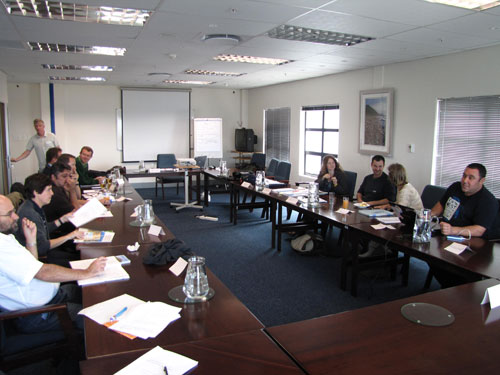On 15 October, the third workshop in a series of four was held to develop a management plan for the Gough and Inaccessible Islands World Heritage Site. The Site is part of the United Kingdom's Overseas Territory of St Helena, Ascension and Tristan da Cunha in the South Atlantic.
Gough and Inaccessible Islands support breeding populations of six ACAP-listed species, including the endemic and threatened Tristan Albatross Diomedea dabbenena and the Spectacled Petrel Procellaria conspicillata.
The mew management plan is intended to cover the period 2010 to 2015, and will build on the existing 1994 Gough and the 2001 Inaccessible plans. It is aimed the new plan will have defined targets for improved conservation management, most especially the eradication of House Mice Mus musculus on Gough and of several species of invasive alien plants at both islands.
The workshop continued to develop a vision statement for what the World Heritage Site should be like in 25 to 50 years' time. It was agreed the aim would be to manage the islands in as near a pristine state as possible, with efforts directed at eradicating alien species the main management activity required.

The workshop was held in Cape Town in the board room of the South African National Antarctic Programme (SANAP). Attendees were from or represented the City of Cape Town's Biodiversity Management Branch, the UK's Joint Nature Conservation Committee, the Royal Society for the Protection of Birds (RSPB), the Tristan Biodiversity Advisory Group, the South African Department of Environmental Affairs, SANAP, the Government and community of Tristan da Cunha, and the University of Cape Town. Among the Tristan delegation was the Chief Islander, Conrad Glass and the Head of the new Conservation Department, Trevor Glass. The meeting was convened by the RSPB under the facilitation of Doug Gilbert, a RSPB Reserves Ecologist based in Edinburgh, Scotland. The next and last workshop in the series will be held in Sandy, England on 6 November. The first two were held on Tristan da Cunha in August this year under the auspices of the Tristan Conservation Department.
John Cooper, ACAP Information Officer, 17 October 2009

 Français
Français  English
English  Español
Español